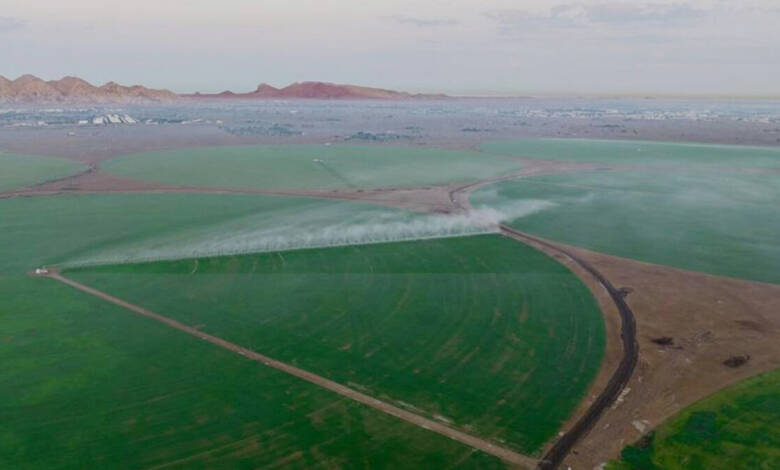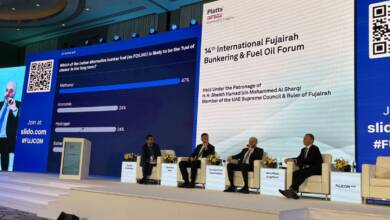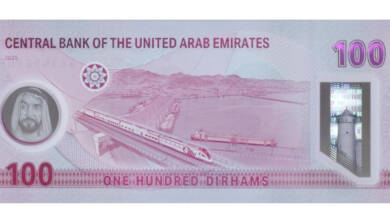Sharjah wheat farm expansion announced

In Sharjah’s Mleiha, a massive carpet of green has taken over a desert. There were over 400 hectares of wheat fields and 200 tonnes of high-quality grain produced on the farm. Now, the Sharjah Ruler has issued directives to expand it to 1,900 hectares.
The team working on the project has already begun expanding the cultivation area fivefold. This year’s seeds will be sown in November.
The original plan was to double the farm size by 2024 as part of phase 2 of the project and make it a 1,900-hectare green oasis by 2025 (phase 3).
However, His Highness Sheikh Dr. Sultan bin Muhammed Al Qasimi, Supreme Council Member and Ruler of Sharjah, directed the authorities concerned to merge the second and third phases.
Called ‘Saba Sanabel’, which means seven spikes, the wheat produced at the farm has the highest protein content in the UAE market at 18 percent. A desert harvest defied predictions that wheat couldn’t be grown there.
In order to ensure the smooth processing and distribution of the chemical-free wheat, Sharjah has contracted Al Ain Mills to mill it.
As the official distributor of locally-grown wheat, Sharjah Cooperative Society has also been granted the contract to sell and market it.
Customers have responded enthusiastically, according to the team handling the project.
Sharjah wheat farm expansion necessary
Ramadan’s holy month ended with the first batch of wheat becoming available. Currently, the product is available in two sizes – 2kg and 5kg – in stores and online.
He vowed to have more farms producing vegetables free of toxins and pesticides. He blamed these chemicals for serious diseases such as cancer.
The wheat farm project is a major milestone in the UAE’s efforts to enhance food security. The success of this project is expected to have a positive impact on the country’s economy, reducing import dependence.
Thirteen-metre irrigation lines water the crops on the farm in a process powered by artificial intelligence. A state-of-the-art irrigation station provides water to the wheat farm through six large suction pumps with a capacity of up to 60,000 cubic metres of water throughout the day. Water is transported from the Hamda station through a 13-kilometre conveyor line to the farm.
Farms are blooming across the country as the UAE realises its plans for food production with recycled water and minimal waste.
The Sharjah wheat farm expansion is one of the UAE ambitious food security targets. In March, Mariam bint Mohammed Almheiri, UAE Minister of Climate Change and Environment (MoCCE), said the country is aiming to secure 50 percent of some basic food requirements from local farms and producers by the end of this year. She also plans to increase the target to 100 percent by 2030.




